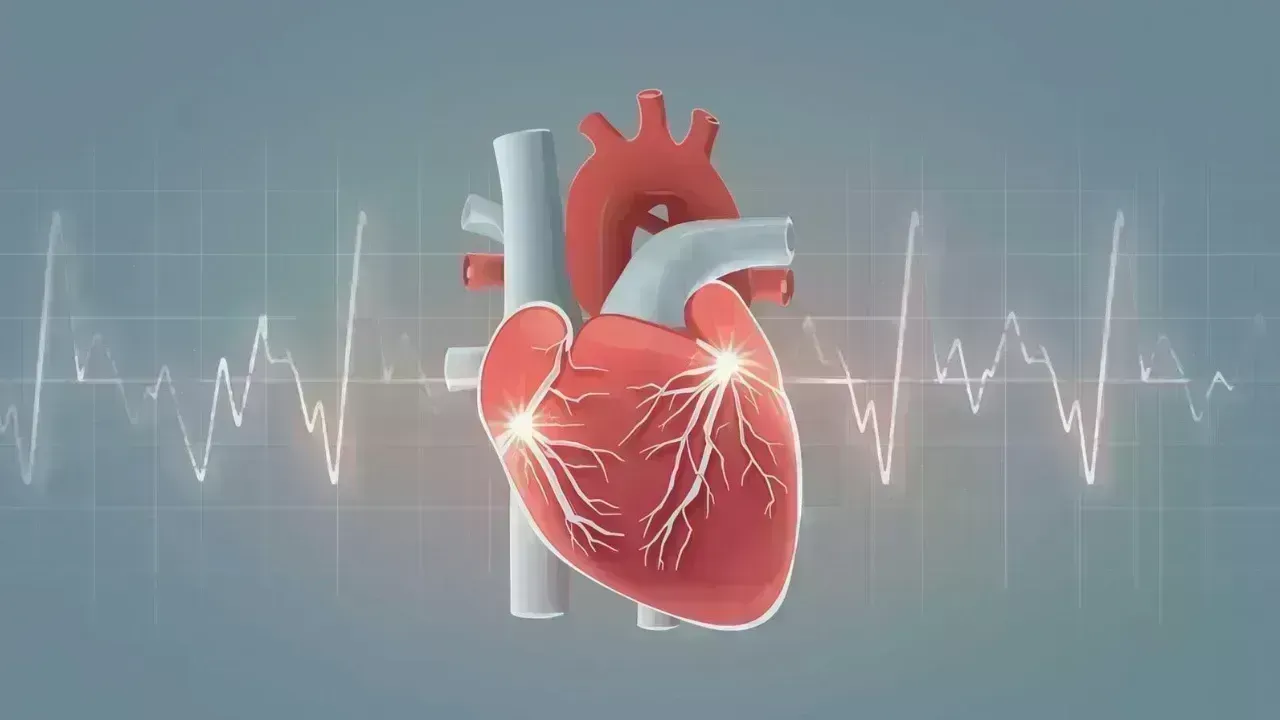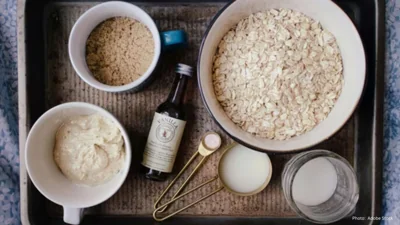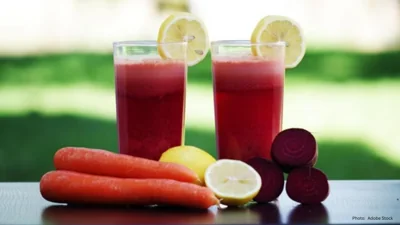
Post by : Shivana Rahim
Silent heart attacks are often underestimated because they lack the classic chest pain commonly associated with myocardial infarctions. Recent 2025 studies show that nearly 45% of heart attacks in Indian adults may be silent, often revealed only during routine medical check-ups or post-event investigations. Awareness, early detection, and lifestyle modifications—including heart-friendly diets and reflux-sensitive meal planning—are vital in reducing long-term cardiac risk.
Silent myocardial infarctions occur when blood flow to a part of the heart muscle is blocked but symptoms are mild, subtle, or absent. Nerve damage from diabetes, mild obstruction, or gradual artery narrowing can reduce pain signals, making detection challenging.
Silent heart attacks often mimic minor health issues, making recognition critical.
Women may experience more atypical symptoms like extreme fatigue, sleep disturbances, or anxiety rather than chest pain, making diagnosis challenging.
Several studies across Mumbai, Bangalore, and Delhi hospitals report that nearly 40–50% of diabetic patients with cardiac events were initially diagnosed with silent heart attacks, highlighting the need for routine screening in high-risk groups.
Early detection requires structured medical assessment:
ECG detects electrical changes in the heart indicative of infarction, even if symptoms were mild or unnoticed.
Assesses heart muscle function, wall motion, and areas affected by silent infarcts.
Used to evaluate blood flow, blockages, and overall cardiovascular health, especially in high-risk Indian adults.
Structured cardiac rehab programs help regain endurance and strengthen the heart:
Dietary management is central to preventing recurrence and supporting cardiac recovery.
Ingredients: ½ cup moong dal, ½ cup rice, 1 tsp turmeric, pinch of hing, 1 tsp ghee (optional)
Method: Rinse dal and rice. Cook in water with turmeric and hing until soft. Add ghee before serving. Easy on the stomach and anti-inflammatory.
Ingredients: Fermented rice & urad dal batter, lightly steamed vegetables, coconut or coriander chutney
Method: Steam idlis and serve with mild chutney. Avoid tamarind-heavy chutneys to prevent acid reflux.
Ingredients: ½ cup oats, 1 cup papaya, 1 cup almond milk, ½ tsp cinnamon
Method: Blend all ingredients for a heart-healthy, low-acid breakfast or snack.
Ingredients: 1 cup oat or lactose-free milk, ½ tsp turmeric, ¼ tsp ginger, pinch black pepper, ½ tsp honey, 60 ml mild brewed coffee
Method: Heat milk with turmeric and ginger. Add coffee and honey. Stir well. Anti-inflammatory and gentle on the stomach.
Ingredients: 1 cup almond milk, 1 stick cinnamon, 1 crushed cardamom pod, 60 ml mild filter coffee
Method: Boil milk with spices, strain, and mix with coffee. Supports digestion and heart health.
Silent heart attacks are hidden but potentially dangerous. Awareness of subtle symptoms, routine screening, structured recovery, and diet/lifestyle management—especially reflux-sensitive Indian diets—can prevent future complications. Following updated 2025 guidelines ensures proactive care and long-term heart health.
Recent research has shed light on silent heart attacks, particularly in the Indian population:
New 2025 cardiac rehab programs in India focus on:
Silent heart attacks can increase the risk of subsequent cardiac events if left unmanaged. Key points include:
Yes. Controlling risk factors—diabetes, hypertension, cholesterol, smoking, and sedentary lifestyle—can greatly reduce the likelihood. Diet and regular exercise are also crucial preventive measures.
Routine medical check-ups with ECG, echocardiography, and blood biomarkers like high-sensitivity troponin are essential. Paying attention to subtle symptoms like unexplained fatigue or mild reflux discomfort can also help.
Focus on whole grains, non-dairy milk, low-acid fruits (papaya, banana), steamed or lightly cooked vegetables, and mild spices like turmeric, cinnamon, and cardamom. Avoid oily, spicy, and processed foods.
Yes, but always under medical supervision initially. Start with low-impact activities like walking, swimming, or yoga, gradually increasing intensity according to your cardiologist’s guidance.
Note: This guide integrates the latest research, Indian dietary considerations, and lifestyle strategies to provide a practical, comprehensive resource for patients and healthcare providers alike.










Traffic Control Measures Announced for A.R. Rahman Concert at IGI Stadium
Delhi Traffic Police introduces measures near IGI Stadium for A.R. Rahman's concert on Saturday even

Kim Woo-bin and Shin Min-a Tie the Knot After a Decade Together
Actors Kim Woo-bin and Shin Min-a celebrated their marriage in an intimate ceremony in Seoul, markin

Rohit Sharma Set to Play Initial Matches in Vijay Hazare Trophy for Mumbai
Rohit Sharma joins Mumbai’s squad for the opening two Vijay Hazare Trophy matches, spearheaded by Sh

Flight Disruptions at King Khalid International Airport
Friday's operations at King Khalid Airport in Riyadh were hampered by delays and cancellations due t

Kavem Hodge Achieves Second Test Century Against New Zealand
Kavem Hodge's unbeaten century leads West Indies to 381-6, evading follow-on against New Zealand in

Security Heightened in Bangladesh Following Youth Leader's Assassination
In response to the murder of youth leader Sharif Osman Hadi, Bangladesh elevates security measures a